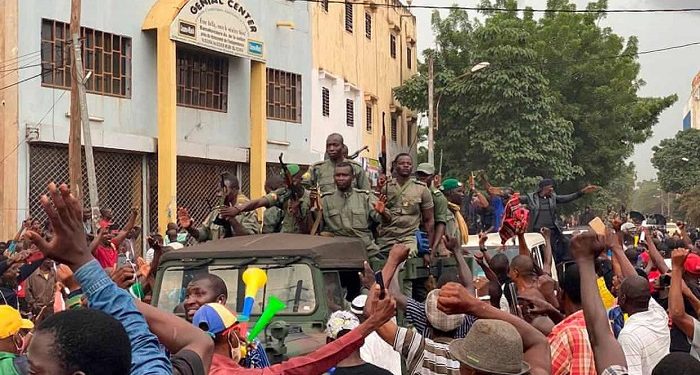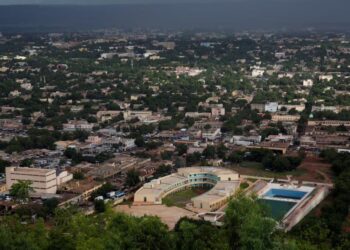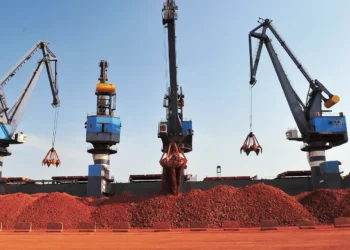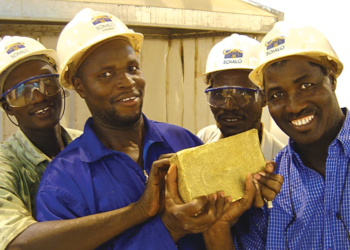Last month – August, 18th, a Military junta occurred in Mali, which seems to have supports of Malians. The junta that ousted Malian elected President, Ibrahim Boubacar Keita out of power saw Malians jubilating and cheering across streets of capital Bamako on Wednesday, August 19th. The junta occurred as soldiers fired into the air outside President’s home and took him into their custody.
The soldiers branded themselves as the National Committee for the Salvation of the People (CNSP), and related their acts majorly to President Keita’s acts of corruption, insecurity, gross economic mismanagement, and nepotism. The military junta, after launching the coup reiterated that President Keita is an ineffective leader who has failed to provide physical security and economic stability as expected in the country, albeit they proposed to remain in power for three years or within a “reasonable timeframe” when elections will be held and another competent civilian government would be voted in.
However, the leader of the junta, Colonel Assimi Goita, the “self-acclaimed” president of the National Committee for the Salvation of the People (CNSP) had immediately after the coup encouraged Malians to go on about their daily activities and resume work as President Keita was forced into resignation after releasing him from custody, despite the fact that the coup received wide criticisms from international organizations.
Not the first time
For the 2020 Malian coup, it could be regarded as history that repeated itself as President Amadou Toumani Touré was also ousted during the March 2012 coup d’état. Mali had served as home for coups, for 2012 – which was the last one that led to the election of the just ousted President Keita, the coups seem to have the same backgrounds.
For the 2012 coup, one of the factors that led to the coup was the fact that there was a serious security crisis in internal and from other neighboring countries, together with a food crisis that starved women and children, and led to Mali displaced populations. Another factor involved Bamako’s ineffectiveness to control the north of the country and its crisis. While this year’s coup garnered facts that the political instability since the 2012 coup also gave birth to the 2020 coup.
Aside from being accused of a disputed election, economic instability, government corruption, another reason for President Keita and his prime minister, Boubou Cissé, alongside other government officials’ detainment by the Military junta was the fact that there is a jihadists’ insurgency that had lasted for eight years in the country – especially, in the northern part of the country. Of recent, before the protests were carried out, the violence increased – a lot of people were forcibly displaced, and in fact, the former presidential candidate, Soumaila Cisse, who was an opposition leader, was also kidnapped allegedly by jihadists early this year.
Malian military junta and International Organizations’ reactions
While for some Malians this is a good cause, however, this is contrary to international organizations and international community assertion – they had opined not to be in support of unconstitutionality. In a reaction from African Union, through its Peace and Security Council Commission, it had suspended Mali from its membership, reiterating that all and sundry should always cease to recourse to violence as one of the ugly means to change the government.
For the Economic Community of West African States (ECOWAS), online media reports emerged that it rejects army takeover in Mali. In a bid to stop “all economic, trade and financial flows and transactions between member-states and Mali”, it was reported that the regional body has also “decided to close all land and air borders” as well as encouraging all partners to do the same. Immediately after the coup, ECOWAS terminated Mali from all its decision-making bodies with instant effect per the culture and as enunciated in the “Additional Protocol on Democracy and Good Governance”, pending when effective constitutional order will reign.
United Nations (UN) on its part also joined global condemnation against the Malian junta. While adding its voice through its Secretary-General, Antonio Guterres and the Security Council also “agitated for the immediate release of President Keita, the Prime Minister Boubou Cissé, and others detained.” The international community and international organizations believe that fire cannot quench the fire, and the coup may likely worsen the Malian situation.
President Keita while presenting his resignation via a televised broadcast revealed his “humble submission” by aligning that “I wish no blood to be shed to keep me in power” as he stepped down from office.
“Mali now lies in Malian Hands”
Whether this is constitutional or unconstitutional, whether Malians’ decision today will create an economic boom or fallout, it lies in their hands. Reports emerged that a minority of Malians are afraid of what the future holds of this current situation.
As could be seen, the Covid-19 pandemic alone has caused economic turndown, and yet again, this is the first coup in the Covid-19 pandemic era. The whole world is watching whether Mali is shooting itself on its feet or trying to grow wings. Corruption, terrorism, mismanagement may have fueled the Malian situation, but the core tension now is whether Mali can contain the aftermath of this coup and at the same time, fight this pandemic.
According to an article published on TIME – time.com, titled “What Happens Next in Mali After the Coup”, Ian Bremmer wrote that despite the fact that the coup has prompted global condemnation from international bodies such as the African Union and the European Union, and allies near and far, Mali’s new military leaders have pledged a speedy return to normalcy as they boast they can restore the country to its former greatness.
The coup leaders had said in a televised address that though election will be held in a “reasonable time”, but they are yet to plan on giving up the fight against insurgents and jihadists.” Now, whether Mali is on the left path or right path to right its wrong, time only beckons… till then.



























































